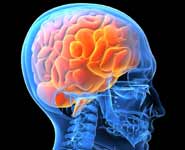The research found that stress hormones directly stimulate biochemical processes in neurons that play a role in learning and memory. The way these hormones stimulate these signalling and epigenetic processes in neurons is completely new and has never been shown before.
In the healthy brain these processes operate smoothly and help people to cope with and learn from stressful events in their lives. In vulnerable people or in strongly traumatized people (victims of rape or war), these processes may be disturbed and stressful events may result in the formation of highly traumatic memories such as those seen in patients suffering from post-traumatic stress disorder (PTSD). The discovery may lead to new ways to develop drugs to help these patients and to prevent PTSD in trauma victims.
Professor Johannes Reul, Professorial Research Fellow in Neuroscience at HW-LINE, said: “Making memories of events in our lives is of critical importance in order to cope properly with new situations and challenges in the future. This is of particular importance for emotional and traumatic life events. Our newly discovered mechanism should be regarded as an adaptive mechanism. We believe this mechanism could be disturbed in stress-related psychiatric disorders such as depression and anxiety.
“The new findings may be of particular significance for patients suffering from post-traumatic stress disorder (PTSD) as these patients are pained by pathological memories of an endured trauma (rape or war situations). We hope our discovery may help to generate a new class of drugs to help these patients.”
The researchers found that stress-induced glucocorticoid hormones enhance memory formation through a direct, physical interaction of glucocorticoid-binding receptors (“glucocorticoid receptor”) with a particular intracellular signalling pathway in a specific population of neurons of the hippocampus. This signalling pathway, the so-called ERK MAPK pathway, is known to be strongly involved in learning and memory processes but it was not known that it could interact with glucocorticoid receptors and that this would lead to an enhancement of memory formation.
This type of interaction has never been described before. The interaction has a major impact as the stimulated signalling cascade results in augmented epigenetic mechanisms in the nucleus of the affected neurons leading to enhanced expression of certain gene products. The induced gene products are known to evoke structural and functional changes in neurons allowing them to strengthen their role in the memory circuits of the brain.
It is well known that people make very strong memories of stressful, emotionally disturbing events in their lives. These so-called episodic memories are memories of the place (e.g. room, office) or surroundings where the event happened, how we felt at the time (mood), and the time of the day at which it happened. These kind of memories can last a lifetime.
The consolidation of such memories is taking place in a specific limbic brain region called the hippocampus – part of the brain involved in memory and learning. Hormones secreted during stress like the glucocorticoid hormone cortisol (in rodents, corticosterone) act on the hippocampus to enhance the consolidation of these memories. However, until now it has been unknown how these hormones act on the hippocampus to enhance the formation of emotional event-related memories.
Paper: Long-lasting behavioral responses to stress involve a direct interaction of glucocorticoid receptors with ERK1/2-MSK1-Elk-1 signaling by María Gutièrrez-Mecinas, Alexandra F. Trollope, Andrew Collins, Hazel Morfett, Shirley A. Hesketh, Flavie Kersanté, Johannes M. H. M. Reul, 2011-04383R PNAS Early Edition (EE) the week of August 1, 2011.
